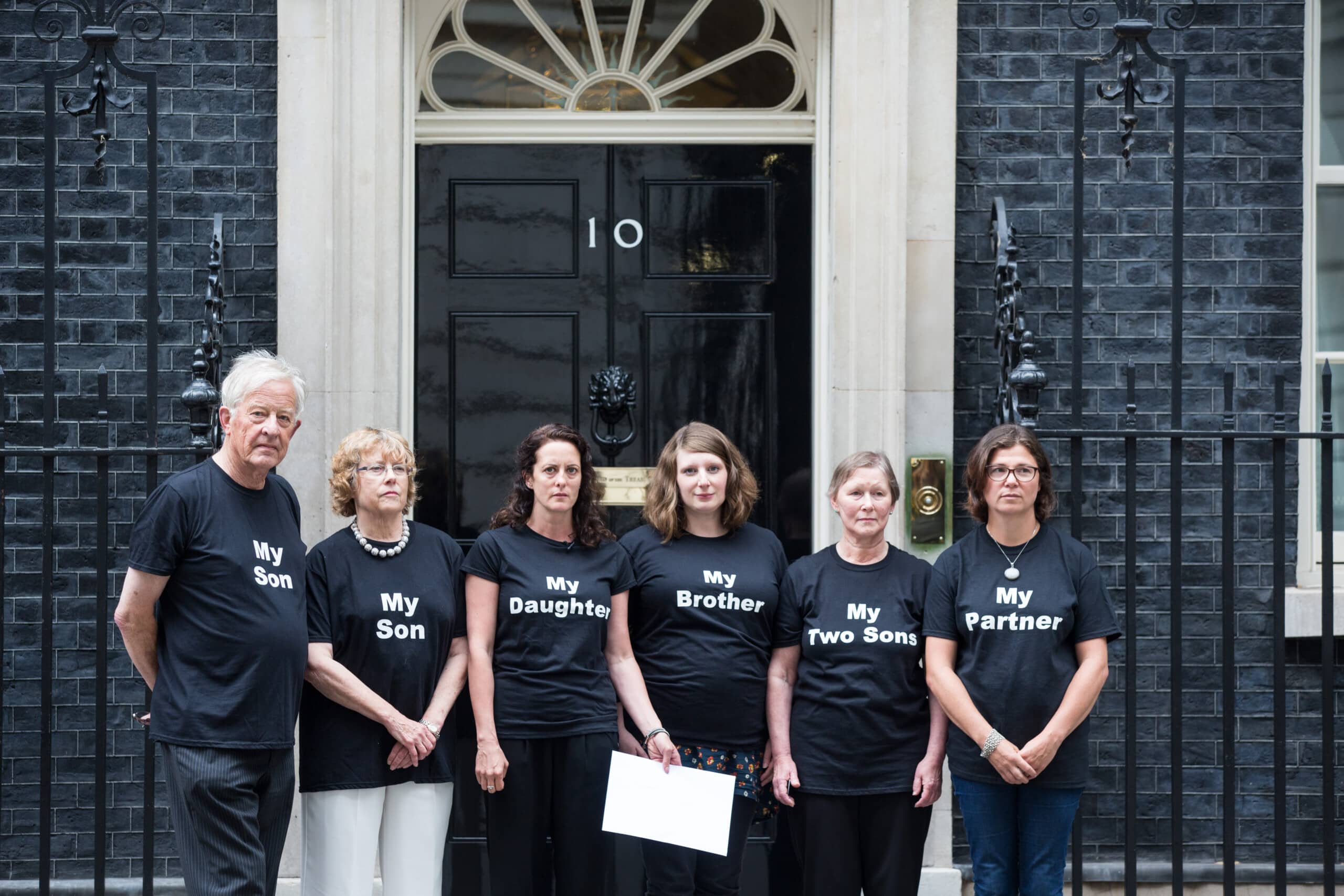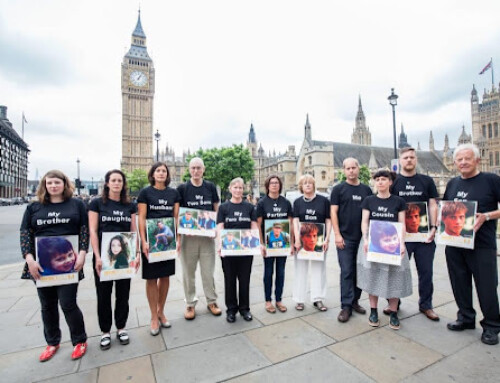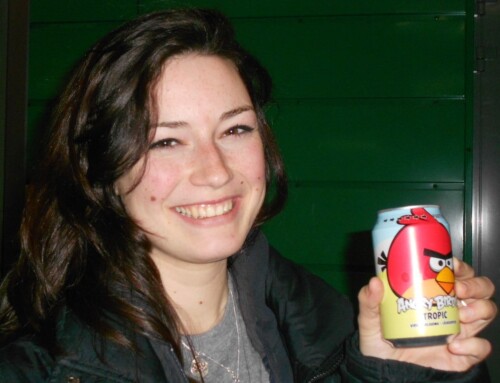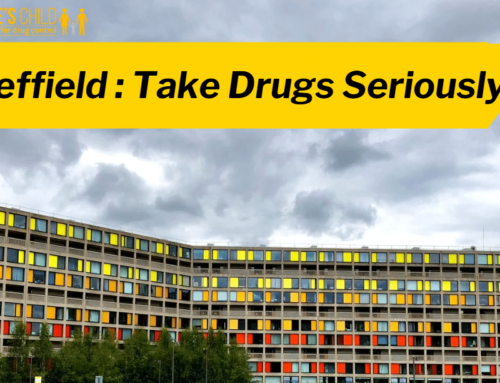The government has recently launched an inquiry into drug policy in the UK. Anyone’s Child family member Hope shares her written submission below:
Health and harms
Health harms from drug use could be minimised if all drug supply was brought under reasonable legal control and regulation.
The UK’s illicit drugs policy has many and varied health consequences. This is mainly because it currently ignores science, evidence and humanity. It has arbitrarily decided to make some drugs like cannabis and ecstasy “illegal” while “allowing” more dangerous drugs like alcohol and tobacco. It ignores the basic fact that people have always used drugs and always will, and appears to believe that people will accept lies, and that persecution and punishment will work to end drug use. This has not proved to be the case. The heart of the illicit drug policy is basically flawed, while the harm caused, is devastating.
Health harms from drug use could be minimised if all drug supply was brought under reasonable legal control and regulation. Usually it’s not the drugs themselves which are so dangerous, but ignorance of their strength and content.
People, especially when young, want to experiment with exciting things in life. Often it is the most creative and intelligent who are attracted to try drugs. Most will come to little harm unless they are unlucky enough to OD or the law gets involved. Death from disobedience and thousands having their future blighted by a criminal record seems to be regarded as acceptable collateral damage from prohibition. This is intolerable. These deaths are avoidable. These young people are only criminals by the standards of bad laws. They are not statistics, they could be anyone’s child.
I know this, because my son is one of them. He was an ordinary student doing what most students do. He admitted he was taking his turn to get ecstasy and cannabis for his household of adult friends. He told the truth and had never been in trouble before, but the law was not flexible enough to differentiate between a student and an “evil” drug dealer: he was given a two and a half year prison sentence. Prison is a brutal place and the mental scars can be deep, especially if you don’t feel you have done anything wrong. In reality, the young don’t always make carefully considered decisions and the law seems remote when they are surrounded by peers all doing the same thing. Luckily, the university was more humane and discerning than the law, and my son went back to finish his degree and then do a Masters. But his life is tarnished unnecessarily and this is unjust. Whether the government accepts it or not, drug use is normal for many people, and has been for a very long time.

Treatment and harm reduction
Problematic drug use is quite another thing, but still it is not usually the drugs themselves that are the basic problem: an underlying issue is already there and the drug use is a symptom. People often self-medicate with drugs just to carry on. Some will have been abused, bereaved, or have mental health problems: addiction can follow. They need all the help they can get but it must not be based on getting “clean” at any price, as that price is often, death. Help must be tailored to the individual’s needs and be available at short notice. These people are frequently emergencies and cannot be put on a waiting list. It is too late to help the dead.
It is very difficult to talk about “evidence” based treatment when the law itself is not evidence based. There is, though, much evidence from other countries for strategies that do work.
Switzerland introduced heroin assisted treatment (HAT) in 1994 and it has been widely expanded since. The results have been that HAT and other harm reduction measures have led to a 60% decrease in felony crimes, and 80% decrease in patients selling heroin and reduced HIV and OD deaths. Some still use heroin but because their dose is safely maintained they can work and live reasonably normal lives. Heroin is greatly stigmatised but is a relatively safe drug, if the dose is correct. It does not attack the vital organs as alcohol and tobacco do and users can live well into old age.
Portugal decriminalised all drugs for personal use almost two decades ago. OD deaths are down 80%, problematic drug use and drug-related incarceration is down, numbers entering voluntary drug treatment is up, new cases of HIV in drug users has dropped from 52% in 2005 to 7% in 2015. UK should be eager to learn from this evidence from other countries.
A criminal justice approach to drugs will never work. How many young people have to be criminalised, how many prisons filled, before the penny drops? The way to help people is to put their health and lives first. If drug use becomes a problem it is a health and social issue, and harm reduction must always be at the heart of any policy.
Best practice
How many, otherwise law-abiding, have been criminalised or imprisoned by outdated, unscientific, cruel laws? The answer is many. Far, far too many
There are some good things happening in the UK now. There is often drug safety-testing at festivals to identify the contents of substances. Recently the HO licensed the first drug-testing clinic in the UK (Which the Dutch have had for years. They have not had a single OD death from MDMA since, while in the UK all drug related deaths increase every year ). These measures will definitely save lives, and may deter people from using drugs, but to be fully effective they must be available wherever needed. Always, drug policy must put health and life ahead of criminalisation and punishment.
Several police forces including Thames Valley are using diversion schemes to keep those caught with small quantities of drugs away from the CJS. They know the damage caused by criminalisation, how it can be the beginning of a downward spiral in a young person’s life. They realise that without legal regulation, the harm caused by the drug laws, can devastate futures.
Most UK drug policy though, is still skewed toward criminal sanctions and punishment. This is not only counter-productive, but is also extremely expensive. Many people are put in prison and then come out brutalised and with a drug problem they didn’t have before. So much money is wasted that there is little left for drug education and help. The whole emphasis must be changed to put health and wellbeing first. Most drug users are not the bad people much of the media would have us believe. Gov Policy hides behind this well-promoted myth, not brave enough to look at the facts. UK drug policy is sadly too often informed by fear of the media and the electorate: it is based on cowardice and is negligent.
In 2002, I gave written and oral evidence to the HASC report “The Government drug policy, is it working?” I and others were listened to and the final recommendation by the then PM was: “We recommend that the Gov initiates a discussion within the Commission of narcotic drugs of alternative ways, including legalisation and regulation, to tackle the global drugs dilemma.”
That was 17 years ago and no such recommendation has been undertaken.
Then in 2012 there was another HASC report: “Drugs, breaking the cycle” This time, after an inquiry lasting a year the committee called for a Royal Commission on the issue.
There has been no Royal Commission.
In spite of all the talking, in spite of all the listening, in spite of all the recommendations, no action is ever taken. It is a huge effort to keep saying the same thing over and over again when zero happens. Just having discussions is simply not enough when the devastation caused by UK drug policy gets worse and worse.

Hope at the launch of Anyone’s Child: Families for Safer Drug Control, when families handed over petition to 10 Downing Street
Drug gangs and the dark web have total control of drug supply. Demand will never go away. The violence of gangs holding on to their vast profits escalates while their victims get younger and younger. How many have died since 2002? How many have been killed by violence, accidental overdoses, or from not getting the help they needed? How many avoidable deaths have there been? How many, otherwise law-abiding, have been criminalised or imprisoned by outdated, unscientific, cruel laws? The answer is many. Far, far too many. They are all someone’s child.
I make no excuse for the angry tone of my submission. I am angry, but more saddened, by the tragedies that are the direct consequences of UK’s illicit drug policy. All I can hope is that, this time, it will be less about discussing solutions, and more about getting on with them. Delay is expensive in ruined and lost lives.
If you feel inspired to campaign for safer drug laws, please join the Anyone’s Child families at our lobby of parliament to end the drug war on June 25 2019. Register here, or for more information contact info@anyoneschild.org



Leave A Comment